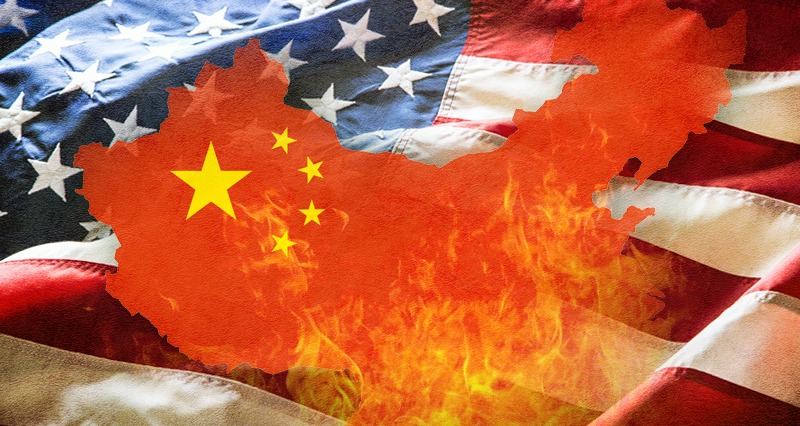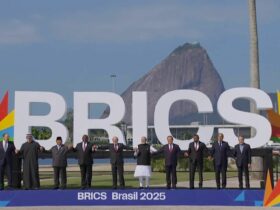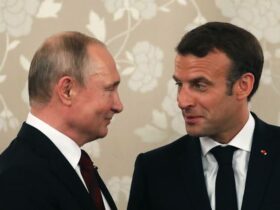By Orçun Göktürk *
The US Secretary of State Blinken was in Beijing for a two-day visit. The scheduled visit in February of this year was postponed due to the “spy balloon” controversy at that time.
The first high-level visit by the US administration in almost five years was greeted with “low-level protocol” from the Chinese government. Blinken was welcomed by Yang Tao, the head of China’s North American and Oceania Affairs, and it was noteworthy that no red carpet was rolled out. Western media commented that this situation was “similar to World War II.” (1)
During Blinken’s visit, which also marked the first visit from the Biden administration’s cabinet, China’s Foreign Minister Qin Gang pointed out that “the China-US relationship is at the lowest point since its establishment,” and delivered clear warnings about Taiwan and other Chinese concerns to the United States. (2)
The downward spiral in US-China relations
Relations between China and the US are going through a challenging period. The Trump-era trade and technology wars have entered a new phase with the Biden administration. So much so that Biden declared right after his presidential oath that “the real challenge in the 21st century will be between the US and China.” (3) The US reorganized its Pacific strategy and announced the AUKUS Treaty by including Australia along with the UK, taking another step in its policy of nuclearizing the Asia-Pacific. In the past period, the Biden administration has accelerated the revitalization of the Quadrilateral Alliance (QUAD), approved the sale of fighter jets to Indonesia for about 14 billion dollars, and opened 9 military bases, including 4 new ones in the Philippines. NATO summits have declared China, along with Russia, “the greatest threat to the rules-based international order”, and last year the Speaker of the House of Representatives Nancy Pelosi crossed China’s red lines with her visit to Taiwan.
Viewed from the Chinese side, China continues to increase its regional and international partnerships in the face of the “encirclement of China” strategy initiated by Trump and continued by the Biden administration. Apart from international institutional structures such as BRICS and the Shanghai Cooperation Organization (SCO), under the leadership of China the signing of the Regional Comprehensive Economic Partnership (RCEP), the world’s largest free trade agreement, and the continuation of major infrastructure projects through the Belt and Road Initiative (BRI) are laying the groundwork for a new international order after the US hegemony. The fact that the US finds itself excluded from both the RCEP and the Comprehensive and Progressive Trans-Pacific Partnership Agreement (CPTPP) marks another important point in the course of international trade that will go down in the economic history of the 21st century in terms of the decline of the leading imperialist
An era of aggressive defense
Militarily, it would not be wrong to say that China has entered a period of more aggressive defense. Indeed, the Chinese People’s Liberation Army launched several drills around the island of Taiwan during Pelosi’s visit, and after the US defeat in Afghanistan, it conducted a military exercise with Russia for the first time under the SCO against the US strategy of “uncontrolled chaos” in the region, using live bullets on land. In addition, Chinese and Russian bombers conducted joint exercises in the East China Sea and the Sea of Japan in December 2022, which was another remarkable development that showed China’s military alignment with Russia despite the Ukraine issue. Perhaps most importantly, China participated in Russia’s Vostok-2022 drills with India for the first time since 2018. In the summer of 2020, China and India clashed militarily over the Kashmir dispute, and two years later they shared a joint military mission, shattering US plans for Asia.
Which way are US-China relations heading?
The regional and international developments we have briefly described above also allow us to various forecasts for the question “Which course will US-China relations take after Blinken’s visit?”.
In November 2022, the leaders of the two countries met at the G20 summit in Bali. Xi warned Biden that the Taiwan issue was “the first red line that must not be crossed in China-US relations “, and Biden stated that they maintained the “one-China Policy”. However, after Pelosi’s visit to Taiwan, China froze many channels of dialog with the US, especially commercial, military and diplomatic, and in this aspect, there was no development in the Biden-Xi meeting in Bali.
We may argue that Blinken’s visit does not represent a significant breakthrough against the strategic deadlock that the US has developed based on unilateral and sanctions diplomacy. However, it clearly represents a beginning that could pave the way for still planning bilateral meetings such as the visit of the US Treasury and Commerce Secretaries to China and the subsequent Biden-Xi meeting. In fact, Blinken’s statement that the main goal of the talks before landing in China was to “create new mechanisms for crisis management” reveals the bleak outlook for the current state of relations.
The “2023 Asia Power Index”, recently released by the Australia-based Lowy Institute, renowned for its Asian studies, provides important information about the current state of the US-China power struggle, particularly in the Asia-Pacific. (4) According to this study, China has either caught up or surpassed the US in many parameters such as “economic capacity, military structure, diplomatic relations, defense allies, cultural influence, and the ability to cope with challenges”.
As the Lowy Institute report shows again, the US is a declining power, while China is the biggest representative of the new rising powers. It’s a fact that the US is in a dilemma in its relations with China. As the recent visits to Beijing by EU countries, notably the leaders of Germany and France, have shown, European allies are pushing the US to take new diplomatic paths against China in order to dispel the darkness hanging over the international economy, such as the risk of a global recession. In the West, the question is “What will force China to engage in productive negotiations?” The West’s interventions in China’s domestic politics over Xinjiang and Hong Kong through the black propaganda of “human rights and democracy” or the US strategy of Asia-Pacification of NATO over Taiwan and the South and East China Sea are clearly not “productive negotiations”.
China emphasizes ‘patience and determination’
After Blinken’s visit, the People’s Daily, the main newspaper of the Communist Party of China (CPC), published an assessment that read: “The Chinese side of course hopes that relations with the United States can be restored, but we are not in a hurry to do so. We will patiently and resolutely look at the sincerity of the US side and the steps it will take.” (5) Many practices, especially the additional tariffs on Chinese products initiated during the Trump era, as well as the restriction of Chinese students’ education in American academies, are also continued by the Biden government. Meanwhile, Russia’s armed struggle against NATO’s eastward expansion strategy is limiting the strength of American hegemony. Today, China’s policymakers realize that they have a stronger hand against the United States, both at the table and on the ground. Perhaps it was this sense of confidence that led Blinken to be greeted without a “red carpet” when he landed in China.
* Participant of International Master of Public Administration, Future Leaders program, Tsinghua University, Beijing / China
Sources
- https://www.foxbusiness.com/politics/expert-predicts-blinkens-unacceptable-china-trip-outcome-world-war-iii
- https://www.fmprc.gov.cn/mfa_eng/zxxx_662805/202306/t20230619_11099469.html
- https://www.nytimes.com/2021/03/26/us/politics/biden-china-democracy.html
- https://power.lowyinstitute.org/
- https://www.globaltimes.cn/page/202306/1292822.shtml

















Leave a Reply